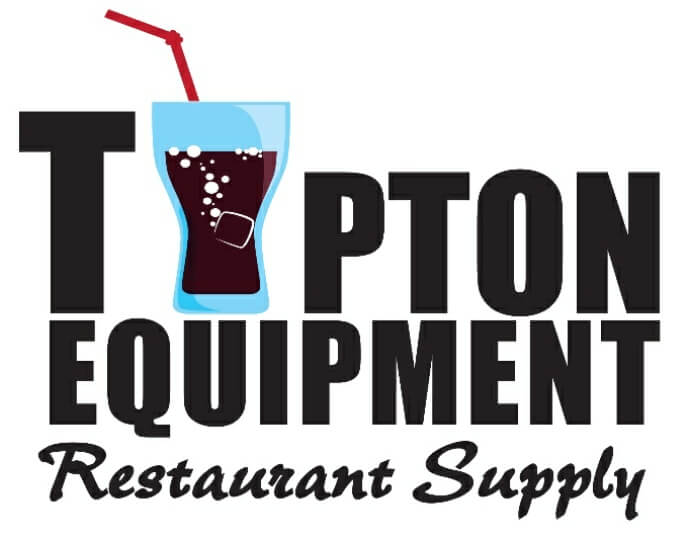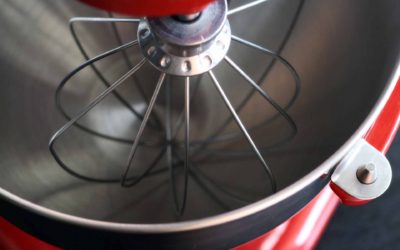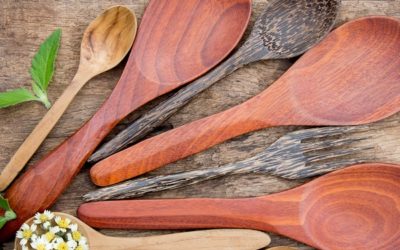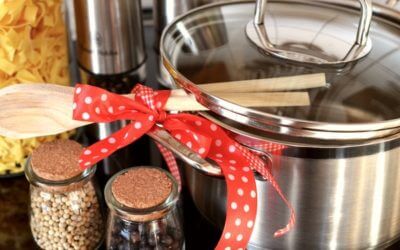Restaurant Equipment: How to Handle Gluten Allergies
August 14, 2018In the last five years, you’ve probably seen a dramatic increase in the number of restaurant customers you have that are avoiding gluten.
Some of them simply don’t like it, and others have a life-threatening reaction if they eat it. As a restaurant owner, you want to be able to accommodate your guests.
However, knowing how to properly choose and use restaurant equipment to handle gluten allergies can be a challenge. Here are some tips that can help.
Understand the Types of Gluten Concerns
When someone says, “Do you have anything gluten-free?” they can be asking for a wide variety of reasons.
Perhaps they simply believe gluten is bad for them. Or, they may have actual medical reactions to gluten that may be severe.
Here is a list of the different concerns people may have with gluten:
- Allergies: these range from mild to life-threatening. When someone’s immune system reacts to gluten, they can become very ill. This is the case for those with celiac disease.
- Intolerances: sometimes a food simply causes digestive problems. These folks avoid gluten because they don’t like how they feel when they eat it.
- Specific Diet: Many people are on a gluten-free diet either to treat illness or to better their health.
It’s not particularly important why your guests request gluten-free. What is important is that your staff take it seriously. It could be a life-or-death issue, and too many restaurants make light of it.
As you create routines for special requests, it’s helpful to choose restaurant equipment and processes as if everyone who requests gluten-free has celiac disease. This way, you can keep your guests safe while respecting their privacy.
Creating Gluten-Free Dishes For Your Menu
The easiest way to handle frequent requests for gluten-free food is to have specific dishes already on your menu that don’t use those ingredients.
You will probably want to use specific restaurant equipment to prepare these dishes, as gluten can cross contaminate if the pan was used for another sauce or dish.
Remember, gluten-free means free, as in none. For those with celiac disease, a concentration of even 20 ppm in gluten can make them very ill for days.
As you create gluten-free dishes, scrutinize every ingredient. It’s amazing how many things have wheat or other gluten-containing compound added to them that you would never expect.
Have Gluten Free Adaptations For Normal Dishes
Some restaurants don’t have the space to keep a wide range of gluten-free dishes on the menu, especially if those items are not moving quickly each day.
Instead, you can have a way to adapt your usual dishes for a gluten-free request. Again, restaurant equipment is vital – you cannot afford to cross contaminate, and you will likely need a new small batch of whatever sauce, seasoning, or gravy is used.
Prepare your adaptations in advance and train your staff in how to create them. You can look over your menu to see which items are easiest to convert. Again, be careful of ingredients – even a spice mix may have gluten-containing ingredients added.
Have the Right Restaurant Equipment to Handle Allergies
Gluten allergies are not the only special request you’ll come across. That’s why it’s helpful to have specific, clean restaurant equipment set aside to handle allergy requests.
You can prevent cross-contamination without slowing down your kitchen if you have the equipment you need. Are you looking for a new set? We’d love to help. Contact us today for a quote!
5 Essential Buying Tips for Your Next Food Prep Work Table
The right foodservice equipment is pivotal to the efficiency of your kitchen. One of the most important types of foodservice equipment for any kitchen is the work table. With limited room on countertops available for your food prep needs, the cooking process can drag...
Tips for Keeping Your Commercial Sink Sparkling Clean
Your commercial kitchen, just like your personal kitchen, must be kept clean at all times. With all of the cooking and food processing you do, it is inevitable that your sink gets messy. Cleaning up your commercial kitchen is incomplete without proper cleaning of your...
Food-Cutting Secrets to Beautiful Dishes
In the restaurant industry, presentation is often said to be just as important as the food itself. Using the right knowledge, skills and restaurant supplies, you can incorporate creativity into your presentation, making guests feel that they are getting something...
Top Space-Saving Tips for Commercial Kitchens
Top Space-Saving Tips for Commercial Kitchens Space is always an important consideration when setting up a kitchen, and this is even truer for commercial kitchens. With a strong focus on functionality and the kitchen supplies that meet the needs of your commercial...
5 Ways to Get the Most Out of Your Mixer
No one wants to eat off of dirty or tarnished silverware. A stand mixer is a highly useful piece of kitchen equipment to invest in. Although this type of kitchen equipment does not usually come cheap, it can last a lifetime when properly cared for. Despite all your...
Restaurant Prep Tool Selection Simplified
What’s a restaurant kitchen without high-quality prep tools that can withstand the pressure of frequent use? Whether you already have a restaurant you’re running, or you’re just planning to launch one, one vital factor that could make or mar your business is how you...
Beginner’s Guide to Choosing a Commercial Ice Cream Freezer
Ice cream is a delicious and appealing desert treat for everyone, young or old. Having made the decision to sell ice cream to your customers, whether you have a restaurant, convenience store, or specialty ice cream parlor, it is time to begin stocking up on the right...
How to Choose the Right Kitchen Scales for Your Restaurant
A food scale is an essential item in every restaurant’s store of kitchen supplies. Designed to take the guesswork out of food measurement and maintain consistent food serving sizes, food scales are indispensable kitchen supplies in the commercial kitchen. With such a...
Beer Chilling Systems: Which Type Is Right for My Restaurant?
A refrigeration unit is integral to the functioning of any restaurant. Beers are best served cold - there’s no questioning that! But which beer chilling system is the best? From reach-in coolers to glycol chillers, a beer chilling system is an important piece of...
What Equipment Will I Need to run a Food Truck?
There’s a lot of planning that goes into starting your own food truck business. Before you hit the road with your delicious food offerings, you’ll need to fill up your truck with all the right foodservice equipment. Considering the lengthy list of possible items to be...
8 Types of Food Thermometers: What You Need To Know
Food thermometers are essential restaurant supplies for your commercial kitchen. They ensure that foods prepared in your commercial kitchen are cooked to the right temperature and held at that temperature for as long as necessary to kill any harmful bacteria. This...
How to Identify the Best Food Processor for Your Needs
Highly versatile and extremely efficient, food processors are designed to take away the hard work from repetitive kitchen activities. This type of cooking equipment can quickly become an invaluable tool in your kitchen. From chopping, to shredding, grinding, mincing,...
6 Keys to Choosing the Best Chafing Dishes for Your Restaurant
The chafing dish, also known as the chafer, is an essential piece of restaurant equipment for any establishment that wants to keep food hot. This type of restaurant equipment gets its name from the French word, chauffer, which means to heat, and it’s easy to see why....
Turning up the Dial on Commercial Fryers: How to Choose One for Your Restaurant
Fried food is a well-loved favorite. This is a fact. It also makes a fryer an important piece of equipment to have in your commercial kitchen. Just consider how many appetizers and sides require frying: onion rings, French fries, and fried green tomatoes are just a...
What’s in a Cooking Pot, How to Choose the Right One?
As a restaurant owner, your cooking needs might vary. Did you know that a good quality pot can greatly improve your cooking experience, while also improving the quality of your cooking? This cooking equipment is a very important one that cannot be done away with...















